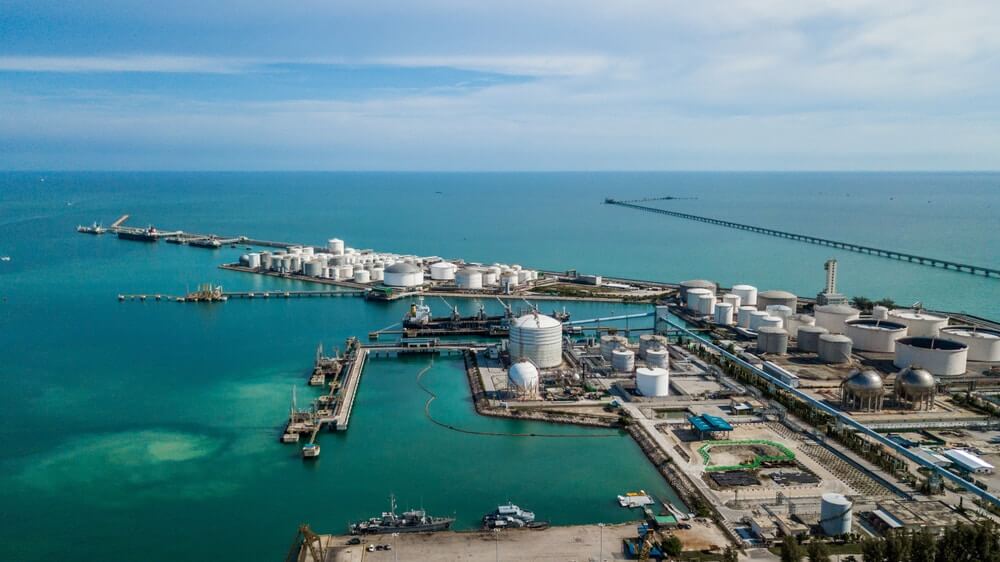
Oil Prices Rise Slightly as The OPEC+ Plan Falls Short
Oil prices edged higher on Friday as markets dismissed OPEC+’s decision to increase output and questioned whether the additional production would compensate for lost Russian supply while meeting China’s growing demand amid easing COVID restrictions.
At 0640 GMT, US West Texas Intermediate (WTI) crude futures were up 7 cents to $116.94 a barrel; meanwhile, Brent crude futures were 18 cents to $117.79 a barrel.
On Thursday, OPEC+ decided to increase output by 648,000 barrels per day (BPD) in July and August; rather than the previously agreed-upon 432,000 BPD. more info
The increases were distributed proportionally among the member countries. Still, with Russia included in the agreement and members like Angola and Nigeria already failing to meet their targets, analysts predicted that the supply increase would be less than the announced volume. Russian output has already fallen by one million BPD since it invaded Ukraine, which Moscow describes as a “special military operation”; moreover, it should fall even further as the European Union’s ban on Russian oil takes effect.
To put it another way, traders believe the incremental increase is insufficient in light of the growing downside supply risks from the EU embargo and the expected increase in demand from China.

Halt the Oil Price Rally
The summer driving season has returned; Americans feel the pinch at the pump as gas prices continue to hit new highs. The national average for unleaded gas reached a new high of $4.67 per gallon; the average price is over $4 per gallon in all 50 states for the first time. President Biden is scrambling to cut gas prices ahead of the midterm elections. Still, he is out of alternatives after the record release of 1 million barrels per day from the Strategic Petroleum Reserve for six months did little to stem the oil price spike.
Draghi and Biden have also discussed placing a cap on wholesale gas prices; something Italy has been pushing for the past three months within the EU.
Indeed, Italy has persuaded many EU countries to support an oil price ceiling. Still, it faces stiff opposition from the Netherlands and Germany, two of Russia’s top consumers. The EU executive is likewise skeptical.
A price restriction on oil should only be used as a last resort in an emergency, such as if Russia turns off all gas to the EU. The EC’s decision appears to have been influenced by various specialists who claimed that caps could jeopardize the EU’s climate goals by promoting further consumption of fossil fuels. Last week, Germany’s economy minister, Robert Habeck, said that the commission and the United States were working on a proposal to control global oil prices.
Meanwhile, Michael Bloss, a German Green MEP, has proposed that the EU form an oil consumers’ cartel with other industrialized countries such as the United States, United Kingdom, Japan, and South Korea, which account for a “large percentage of world oil consumption.”

Russia’s Oil Output up 5% in May
Russia’s oil production increased by 5% in May; beforehand, it had one of the most significant dips due to Western pressure over the Ukraine conflict. Russian crude output totaled 43.1 million tons last month, with an average of 10.2 million barrels per day.
It was a 5% increase from the 10 million BPD in April; Russia experienced one of the steepest drops since the Soviet Union’s demise. According to Vedomosti, Russian production was 11 million BPD in March and 11.1 million BPD in February. Russia’s output in May 2022 fell 2.5 percent year on year from May 2021. This year, Russia’s Finance Ministry predicts a 17% drop in oil production; output will average an 18-year low of 9.13 million BPD.
As part of its sixth sanctions package in response to Russia’s invasion of Ukraine, the European Union agreed on Monday to prohibit 90 percent of Russian petroleum by the end of 2022. The embargo offers exemptions for EU member nations that rely on Russian oil.
Experts questioned by Vedomosti attributed last month’s increase in crude output to new Asian consumers sought by Russia after US and UK sanctions and decreased demand in Europe. According to senior Alfa Bank analyst Nikita Blokhin, global market data source Refinitiv expects Russian oil shipments to climb to 900,000 BPD to India and 400,000 BPD to China. Russia would be able to steady production at 10.3 million BPD if it could further change the global oil market.




